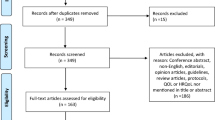Abstract
This study aimed to determine the criterion validity of the Short Form 36 health survey questionnaire (SF-36) in a large community sample, and to explore the instrument's internal consistency and validity in groups reporting different levels of ill-health. A postal survey was undertaken using a questionnaire booklet, containing the SF-36 and a number of other items concerned with lifestyles and illness. The questionnaire booklet was sent to 13 042 randomly selected subjects between the ages of 18–64 years, drawn from Family Health Services Authority (FHSA) computerized registers for Berkshire, Buckinghamshire, Northamptonshire and Oxfordshire. This paper is based upon the 9332 (72%) responses gained. Scores for the functional status and well-being scales of the SF-36 were used as outcome measures. The response rate for the questionnaire booklet was 72%. Internal consistency of domains was found to be high, both for the sample as a whole, and when broken down by specific subgroups. Criterion validity was assessed by comparing scores for the seven multi-item dimensions assessing functional status and well being with a single global health question. The global question was the first item of the SF-36 and asks respondents to evaluate their health ‘overall’. Statistically significant trends were observed for decreasing SF-36 scores (i.e., those indicating greater health problems) with worsening self-rated general health. These results provide further psychometric evidence for the use of the SF-36 when used with groups reporting varying extents of ill-health.
Similar content being viewed by others
References
McDowell I, Newell C.Measuring Health: A Guide to Rating Scales and Questionnaires. New York: Oxford University Press, 1987.
Wilkin D, Hallam L, Doggett M.Measures of Need and Outcome for Primary Health Care. Oxford: Oxford University Press, 1992.
Ware J, Sherbourne C. The MOS 36-Item Short-Form Health Survey 1: Conceptual Framework and Item, Selection.Med Care 1992;30: 473–483.
McHorney CA, Ware JE, Raczek AE. The MOS 36-item short-form health survey (SF-36): II. Psychometric and clinical tests of validity in measuring physical and mental health constructs.Med Care 1993;31: 247–263.
McHorney CA, Ware JE, Lu JFR. The MOS 36-item short-form health survey (SF-36): III. Tests of data quality, scaling assumptions and reliability across diverse patient groups.Med Care in press.
Brazier JE, Harper R, Jones NMB, et al. Validating the SF-36 health survey questionnaire: new outcome measure for primary care.Br Med J 1992;305: 160–164.
Garratt AM, Ruta DA, Abdalla MI, Buckingham JK, Rusell IT. The SF 36 health survey questionnaire: an outcome measure suitable for routine use within the NHS?Br Med J 1993;306: 1440–1444.
Jenkinson C, Coulter A, Wright L. Short Form 36 (SF 36) health survey questionnaire. Normative data for adults of working age.Bt Med J 1993;306: 1437–1440.
Jenkinson C, Wright L, Coulter A.Quality of Life Measurement in Health Care: A Review of Measures and Population Norms for the UK SF-36. Oxford: Health Services Research Unit, 1993.
Streiner DL, Norman GR.Health Measurement Scales: A Practical Guide to Their Development and Use. Oxford: Oxford University Press, 1989.
Hunt SM, McKenna SP, McEwen J, Williams J, Papp E. The Nottingham Health Profile: subjective health status and medical consultations.Soc Sci Med 1981;15: 221–229.
Doll HA, Black N, Flood AB, McPherson K. Criterion Validation of the Nottingham Health Profile: patient views of surgery for benign prostatic hypertrophy.Soc Sci Med 1993;37: 115–122.
Cronbach LJ. Coefficient alpha and the internal structure of tests.Psychometrika 1951;16: 297–334.
Office of Population Censuses and Surveys.Standard Occupational Classification,2. London: HMSO, 1990.
Wright L, Harwood C, Coulter A.Health and Lifestyles in the Oxford Region. Oxford: Health Services Research Unit, 1992.
Helmstadter GC.Principles of Psychological Measurement. New York: Appleton-Century-Crofts, 1964.
Nunnally JC.Psychometric Theory, 2nd edn. New York: McGraw Hill, 1978.
Carmines E, Zeller R. Reliability and Validity Assessment.Quantitative Applications in the Social Science. Beverley Hills: Sage, 1979.
Bindman AB, Keane D, Lurie N. Measuring health changes among severely ill patients: the floor phenomenon.Med Care 1990;28: 1142–1152.
Ware JE, Nelson EC, Sherbourne CD, Stewart AL. Preliminary tests of a 6-item general health survey: a patient application. In: Stewart AL, Ware JE, eds.Measuring Functioning and Well-Being: The Medical Outcomes Study Approach. London: Duke University Press, 1992.
Deyo R, Inui T. Towards clinical applications of health status measures: sensitivity of scales to clinically important changes.Health Serv Res 1984;19: 275–289.
Hays RD, Hadorn D. Responsiveness to change: an aspect of validity, not a separate dimension.Qual Life Res 1992;1: 73–75.
Author information
Authors and Affiliations
Rights and permissions
About this article
Cite this article
Jenkinson, C., Wright, L. & Coulter, A. Criterion validity and reliability of the SF-36 in a population sample. Qual Life Res 3, 7–12 (1994). https://doi.org/10.1007/BF00647843
Received:
Accepted:
Issue Date:
DOI: https://doi.org/10.1007/BF00647843



